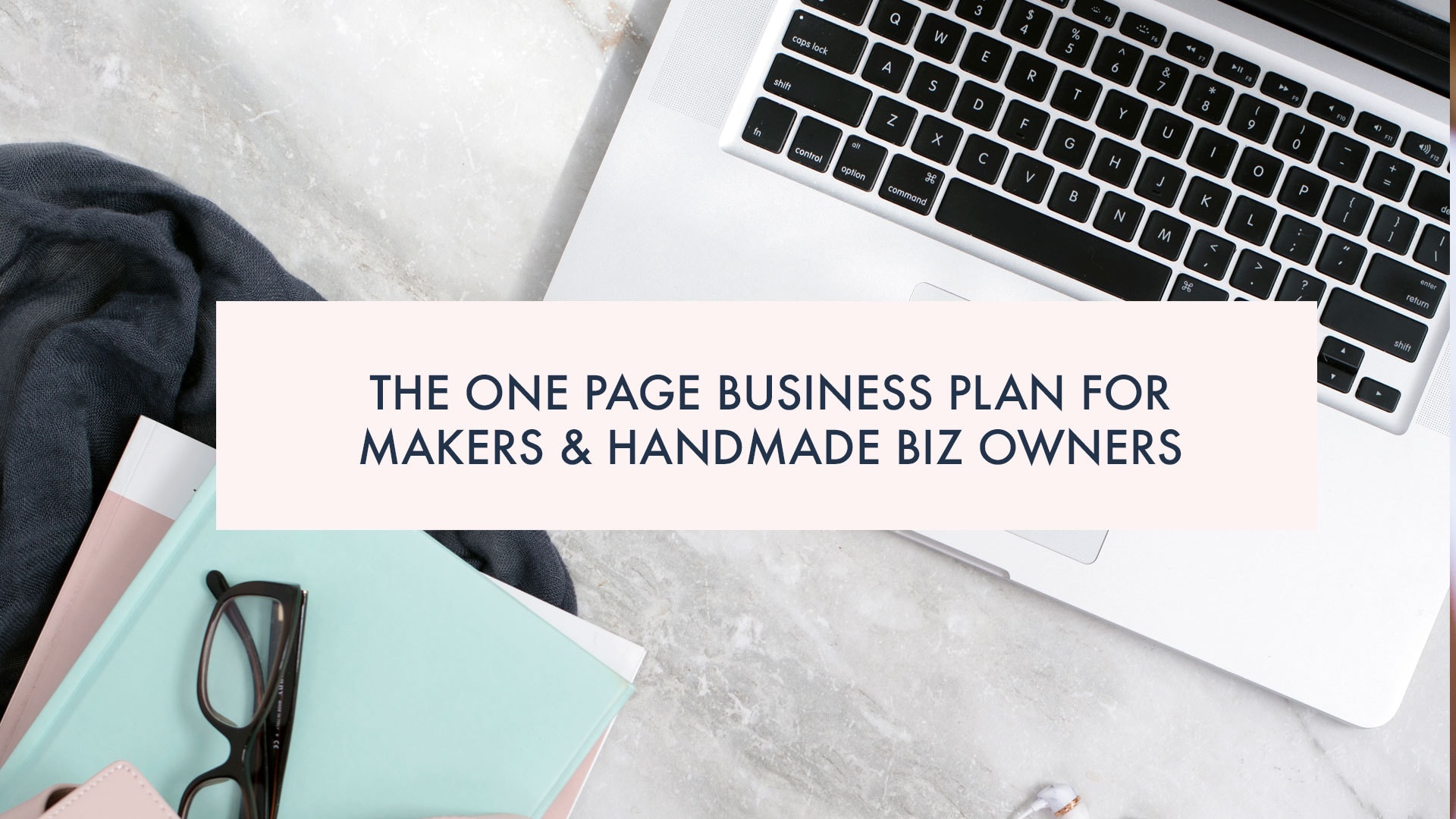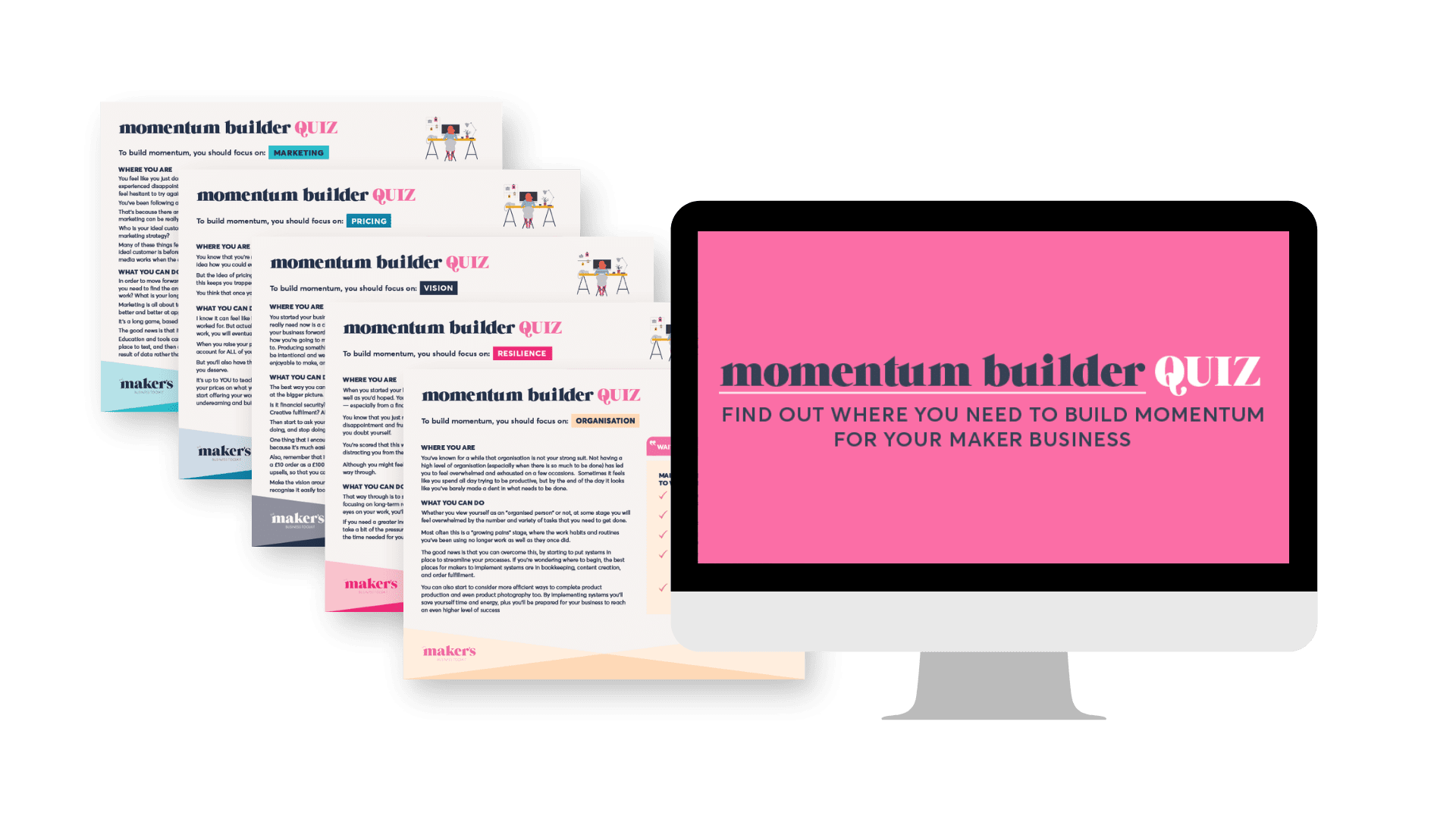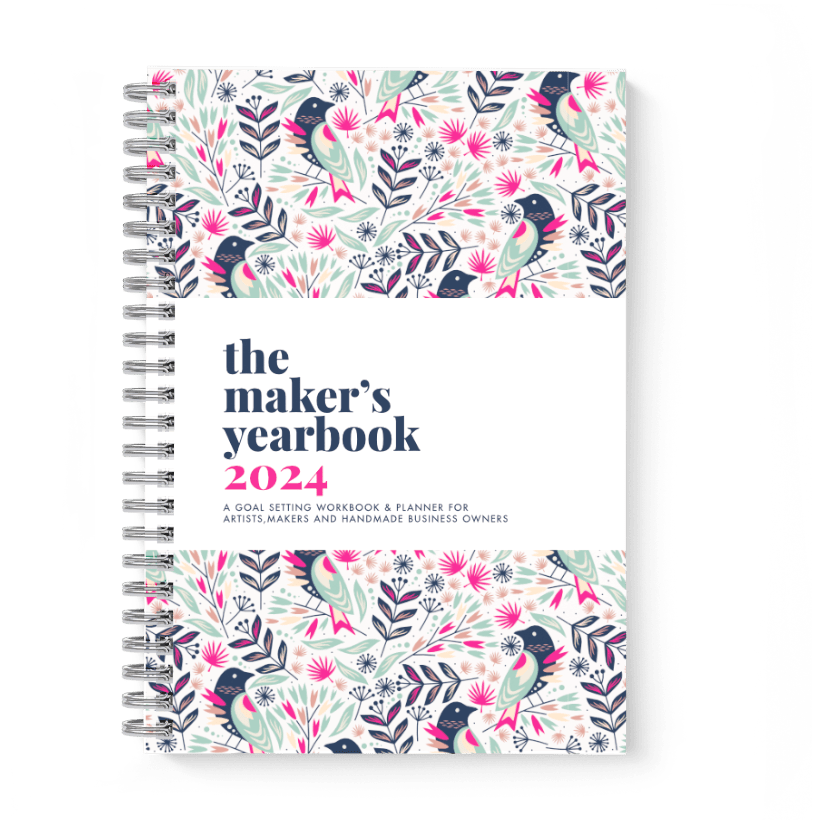Most makers don’t have a business plan. For a lot of us, we never intended to be business owners. We just liked making things.
Eventually, somewhere along the way that changed into a way to make some extra money on the side, a way to create flexible working conditions, or even just a way to get paid to make things.
When you slide into building a business, you often skip the foundations. It all seems like a bit of an experiment so business plans and strategy feel like something for later. You just want to figure out whether you can make this thing work before thinking about any of that stuff.
But here’s the problem with that approach.
Business is ALWAYS an experiment. It’s never done. Just like life, there’s never a point when you’ve got it all figured out and you’re just doing it.
So, all that time you’re just “trying to figure it out?”
You’re doing it. You’re running a business.
But without any kind of plan, you’re taking the long way around. And no, “make enough sales to live on” is not a business plan.
So, what is a business plan and why do you need one if you already know you need to sell more?
A business plan is document that sets out how your business will function. It sets out what you want your business to look like. But business plans don’t need to be some huge, boring document that’s painful to create.
If you’re trying to secure funding then your business plan generally needs to follow a set format but if it’s just a roadmap for you it can take any form you like.
So it doesn’t have to be a dry, boring document.
You could sketch or draw your business plan, you could make a business plan vision board, you could write the story of your future business.
You can make your business plan as creative as you want, as long as it gives you clarity on a few simple questions.
Questions like:
— What do you want your business to provide for you?
— How much money do you need to get this?
— What products do you intend to sell?
— How many of them do you intend to sell?
— Who will you sell them to? Be as specific as possible
— What will you do to find a large number of these people?
— How will you continue to sell to them?
It should be fun to think about this stuff. To think about what it is you want your business to provide for you and for your customers.
But there are also other benefits to creating a business plan, the biggest one being that this kind of clarity about what you want makes it easy to overcome some of the most common problems faced by makers.
1. Lack of direction and problems with decision making
It becomes SO much easier to make a decision when you have something to measure it against. When you can think about a decision and consider whether your choice will bring you closer to your business plan or not, it’s simple to know which path to choose.
2. Money Mistakes
A lot of makers waste a large amount of money on expensive shows and advertising that don’t bring any real benefits. It’s also very easy to overbuy materials and equipment when you’re first getting started. But if you know exactly how many products you need to sell to make a profit on that fancy stand or that glossy advert, it makes it easier to avoid getting carried away.
3. Overwhelm
Overwhelm is such a common issue for makers and so much of it comes from having so many things you COULD be doing, but no idea which one you SHOULD be doing. A business plan helps you focus on the most important things – getting your work in front of more of the people most likely to become customers, getting those people to sign up to hear more from you and then making them fall in love with you.
(If you don’t know how on earth you would do this, check out Mailing Lists for Makers: Part Two, which walks you through creating an automated sequence to turn subscribers into buyers)
4. Distractions
So often we find ourselves getting massively distracted when we don’t know where to start.
Think about it, how often do you find yourself hopping on to Facebook when you don’t know what to write in a difficult email or a tricky section of a blog post (ahem)?
Or what about the distractions we can’t just switch off? Health issues, friends and family who need us, that annoying person who always seems to be doing work on their house?
When we have a limited amount of time to work on our business because other things keep getting in the way it certainly helps to have something to remind you of what you’re doing and why. Your business plan can do this for you and help you quickly figure out what the priority is today.
So, are you ready to create your one page business plan?
Click here to download my One Page Business Plan
But remember, the business plan sets out the destination. It doesn’t set out the route. Your strategy is the route.
If the Business Plan is the What, your strategy is the How. Or at least the How I’ll try first.
Because running a business is really just a series of experiments to see what works – with a bit of common sense thrown in.
It’s all about testing different things and finding out what works for your lifestyle, your income goals, the way you want to work, the customers you want to serve, the life you want to have. And that’s different for everyone.
While you’re looking for that How, it can be easy to get off track. It can be easy to follow experts and other makers into the rabbit hole of a new social media platform, or to get worried about missing out on a new art show.
This is where your Business Plan keeps you grounded. It keeps you focused on the destination so that, unlike Alice, you don’t need to take the long way.
Of course things always change and your Business Plan doesn’t need to be rigid. In fact you might even make it a yearly exercise to revisit and review both the destination (your Business Plan) and the route (your Strategy)










